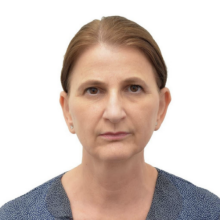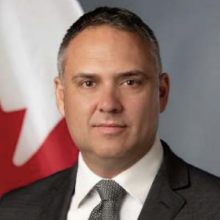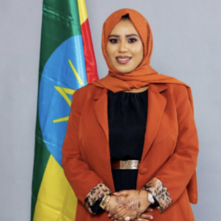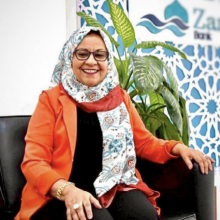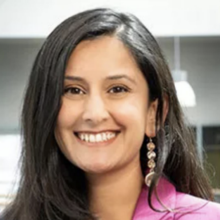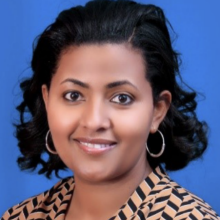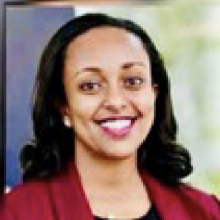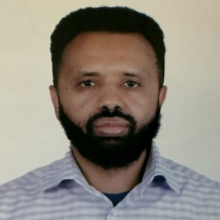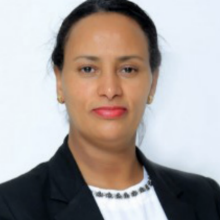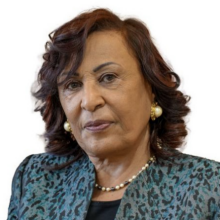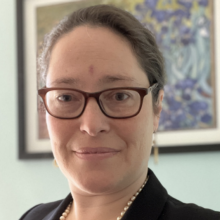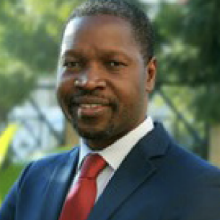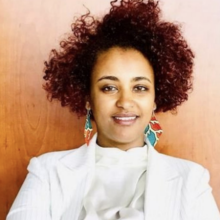
Ethiopia is facing a growing gender gap in financial inclusion. Women are much less likely to own a bank account, for example – a divide which has been widening steadily over the past decade and is now one of the largest in the region. Other indicators such as access to credit or the use of new forms of payment paint a similar picture. This unfortunate trend casts a shadow over an otherwise uplifting trajectory of regulatory reform, increased competition and technological change for the finance sector.
Closing the gender gap in access to finance is a key priority for the National Bank of Ethiopia. Ethiopia’s National Financial Inclusion Strategy (2021-25) has set ambitious targets in this regard, such as doubling the number of transaction accounts held by women. An increasingly dynamic financial sector, the arrival of digital financial services and the spread of mobile money make this objective more achievable than ever. However, it will take decisive action by financial institutions to realize that promise.
The World Bank’s Africa Gender Innovation Lab (GIL) is equally committed to this objective. GIL’s Innovations in Financing Women Entrepreneurs (IFWE) initiative has partnered with more than a dozen banks and MFIs in Ethiopia to develop new financial products, find ways to boost women’s careers in finance, and conduct rigorous research on the topic. The result is a wealth of evidence on ‘what works’ in women’s financial inclusion, both in Ethiopia and beyond.
On March 28, we invite you to join us for a day of learning and action on women’s financial inclusion. Hear from industry leaders, international experts and regulatory practitioners about innovative financial services and the latest research on closing relevant gender gaps. Share your own institution’s experience in better serving women customers. We look forward to welcoming you, and we count on you to help us make Ethiopia’s financial sector work for women.
Mamo Mihretu
Governor, National Bank of Ethiopia
Michael O’Sullivan
Head of the Africa Gender Innovation Lab, World Bank
- OVERVIEW
- EVENT VIDEOS AND MEDIA
- AGENDA
- SPEAKERS
- RELATED
Along with the event, a policy brief, Making Ethiopia's Financial Sector Work: 10 Evidence Based Ideas, suggesting ten concrete, evidence-based ideas for action is being launched.
The ideas in the policy brief are based on a review of the available evidence, from Ethiopia and beyond, on ‘what works’ in closing key gender gaps in the use of financial services. They also take into account recent data on financial inclusion in the country as well as current policy priorities, especially those expressed in the National Bank of Ethiopia’s National Financial Inclusion Strategy. The ideas are grouped into four thematic sections: advancing women’s careers in finance; closing gender gaps in access to credit; closing gender gaps in the use of digital financial services; and regulating for women’s financial inclusion. Some of them can be put into action by Ethiopia’s banks and microfinance institutions, others by the central bank, digital financial service providers or development partners. Making Ethiopia’s financial sector work for women will take a concerted effort.
The Policy Brief can be found here: Making Ethiopia's Financial Sector Work: 10 Evidence Based Ideas.
Thursday, March 28: 9.00 am – 4.30 pm
(Conference Highlights Video)
National Conference on Making the Financial Sector Work for Women
(Conference Presentation Slides)
Time |
Session & Speakers |
8.30 – 9.00 am |
Arrival |
9.00 – 9.30 am |
Welcome remarks Doina Petrescu Acting Country Director for Eritrea, Ethiopia, South Sudan & Sudan, World Bank Amb. Joshua Tabah Ambassador, Canadian Embassy to Ethiopia |
9.30 – 9.45 am |
Launch of the Network of Ethiopia's Women in Finance (NEWFin) The National Bank of Ethiopia is proud to announce the official launch of the Network of Ethiopia’s Women in Finance (NEWFin), a pioneering initiative designed to bridge the gender gap in leadership within Ethiopia’s financial sector and foster women’s financial inclusion. NEWFin is set to transform the landscape of the Ethiopian financial industry by empowering women to ascend to leadership roles, thereby driving gender equality and economic growth. Melika Bedri Mohammed Speaker; NEWFin Board Chair Haddis Tadesse Speaker; Director, Ethiopia, Bill and Melinda Gates Foundation Unveiling NEWFin and Expressing Commitment |
9.45 – 10.45 am |
Panel Discussion: Tackling the Growing Gender Gap in Financial Inclusion The rapid transformation of Ethiopia’s financial sector has not translated into equal opportunities for all. Alarmingly, the gender gap in financial account ownership has been steadily growing over the past decade. The opening panel will try to understand the problem from several perspectives: speakers will highlight statistical evidence, the lived experiences of Ethiopian women, and the trajectory of other economies in the region, as well as NBE’s priorities in addressing the problem. Mekdes Mezgebu Moderator; Principal, Mekdes & Associates Law Office Michael O’Sullivan Presenter & Panelist; Head, Africa Gender Innovation Lab, World Bank H.E. Huria Ali Panelist; State Minister for Social Affairs, Ministry of Women and Social Affairs Frezer Ayalew Panelist; Director of Banking Supervision, National Bank of Ethiopia Mahlet Solomon Panelist; Entrepreneur |
10.45 – 11.15 am |
Coffee break |
11.15 am – 12.00 pm |
Panel Discussion: How to Advance Women’s Careers in Finance The banking industry has a well-known gender gap, and Ethiopia’s financial sector is no exception. Women are severely underrepresented on board seats and in the C-Suite, and they do not get promoted at the same rate as men. Drawing on new research into finance careers in Ethiopia, this panel will highlight why the career gender gap is a cause for concern – and how Ethiopia’s banking sector can respond. It will consider how initiatives like the newly launched Network of Ethiopian Women in Finance (NEWFin) can help transform women’s roles in the industry and promote upward mobility Ketki Sheth Moderator; Associate Professor, University of Tennessee Saba Yifredew Presenter & Panelist; Assistant Professor, Addis Ababa University Jotework Gudeta Panelist; Special Advisor to the Governor, National Bank of Ethiopia Melika Bedri Mohammed Panelist; Chief Executive Officer, ZamZam Bank Ephrem Mekuria Tilahun Panelist; VP of Human Resources, Commercial Bank of Ethiopia |
12.15 – 1.00 pm |
Panel Discussion: How to Promote Women’s Access to Credit In Ethiopia, men are both more likely to receive a loan than women, and they receive larger loans when they do. Despite group and micro-lending schemes that favor women, women face more difficulty than men in getting loans of larger size, longer duration, or more flexible terms – all of which are important for growthoriented entrepreneurs. How can financial institutions reduce reliance on collateral, address the risk of bias, and design products that address the needs of female business owners? This panel brings together banks that have decided to tackle the gender gap in access to capital head on, and that have found innovative ways to better serve women loan clients. Yemsrach Kinfe Moderator; Operations Analyst, World Bank Africa Gender Innovation Lab Girum Abebe Presenter & Panelist; Senior Economist, World Bank Africa Gender Innovation Lab Annastacia Kimtai Panelist; Managing Director, KCB Bank Kenya Tigist Abate Panelist; VP of Operations, Enat Bank Aman Semir Panelist; VP of Digital Banking, Cooperative Bank of Oromia Brutawit Dawit Panelist; Abdi CEO, Lefayda Microfinance |
1.00 – 2.00 pm |
Lunch break |
2.00 – 2.45 pm |
Panel Discussion: How to Close Gender Gaps in the Use of Digital Financial Services The growth of digital and mobile financial services provides new tools for expanding women’s financial inclusion. In Ethiopia, too, the rapid expansion of mobile banking is boosting significant progress towards greater financial inclusion. But there is a risk – and evidence – of growing gender gaps. What are effective strategies to close these gender gaps? What actions can bank, regulators, and development partners take to help to promote greater uptake by women? Industry experts from the financial and telecommunications sectors will delve into these issues, exploring ways in which Ethiopia can make sure women are not left behind. Roman Gebremedhin Moderator; Social Protection Specialist, World Bank Tricia Koroknay-Palicz Presenter & Panelist; Economist, World Bank Africa Gender Innovation Lab Jaki Mebur Panelist; Senior Market Engagement Manager, GSMA Blen Hailemichael Panelist; Director, Merchant and Agent Management, Commercial Bank of Ethiopia Oswell Kahonde Panelist; Head of Anglophone Africa, Better Than Cash Alliance |
3.00 – 3.45 pm |
Fireside Chat: Regulation for Women’s Inclusion As gatekeepers of the financial system, regulators possess a unique authority to shape financial inclusion. Regulators can address systematic barriers and can help generate an enabling environment for closing gender gaps in financial inclusion. Regulators can hold institutions accountable, create the right incentives for inclusion and innovation, and ensure appropriate consumer protections are in place. How can NBE support closing gender gaps in financial inclusion? How have regulators in other markets succeeded in this regard? And what role does genderdisaggregated data play in crafting inclusive policies? This fireside chat with Lay Geok Yeo from the Toronto Centre highlights international experiences and best practices for integrating gender goals into regulatory practice. Marlon Rawlins Moderator; Senior Financial Sector Specialist, World Bank Tewodros Tassew Presenter; Financial Specialist, World Bank Africa Gender Innovation Lab Lay Geok Yeo Speaker; Program Director, Toronto Centre |
| 3.45 – 4.00 pm | Closing Remarks Solomon Desta Vice Governor of Financial Institutions, National Bank of Ethiopia |
4.00 – 4.30 pm |
Conclusions & Coffee |
Panels and Speakers
Making Ethiopia's Financial Sector Work: 10 Evidence Based Ideas
Along with the event, a policy brief, Making Ethiopia's Financial Sector Work: 10 Evidence Based Ideas, suggesting ten concrete, evidence-based ideas for action is being launched. The ideas in the policy brief are based on a review of the available evidence, from Ethiopia and beyond, on ‘what works’ in closing key gender gaps in the use of financial services.
Date: March 28, 2024
Time: 09:00 AM - 04:30 PM ET
Location: Sheraton Addis Ababa


